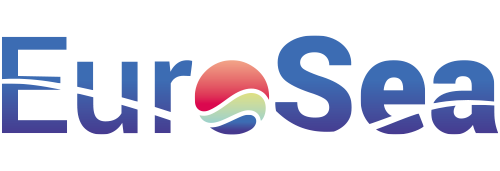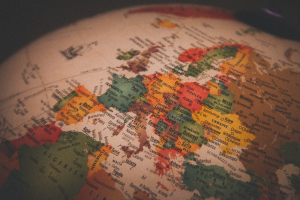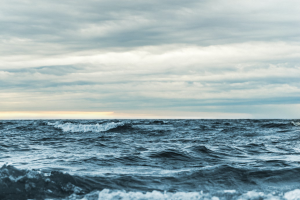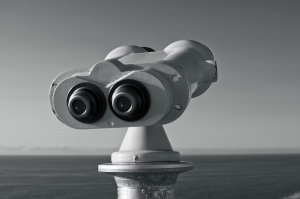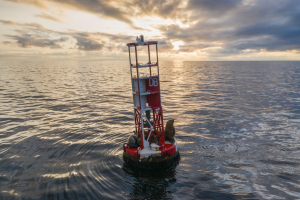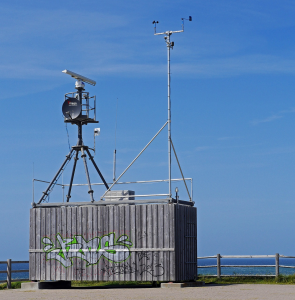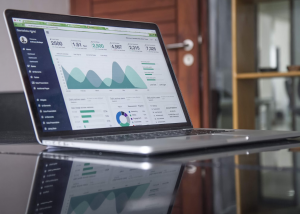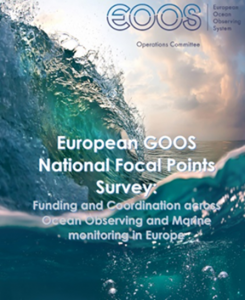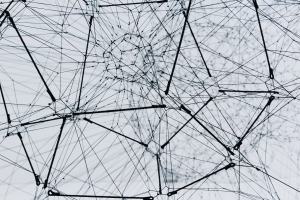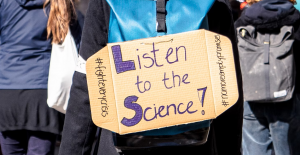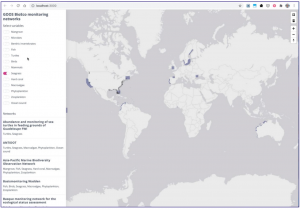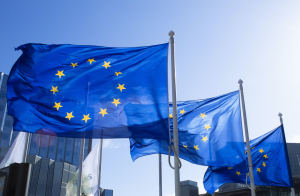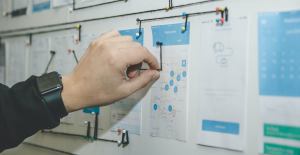Coordination and enhancement
Development of a strategic European vision for a more integrated approach across the entire ocean observing value chain – from the conception of multi-platform observations to the eventual delivery of relevant products
This groundbreaking European vision represents an ambitious overhaul of the ocean observation sector. It's not just about gathering more data, but about ensuring that the data is more meaningful, more interconnected, and ultimately more beneficial for end users. The strategy weaves together every stage of the ocean observing value chain, from the intricacies of multi-platform observation design to the delivery of actionable insights via products. This cohesive approach exemplifies Europe's commitment to leading the way in innovative, comprehensive ocean observation.
Improve coordination and integration of the various elements of the European ocean observing system
The European ocean observing system has seen marked enhancements in terms of integration and coordination across various technology networks. One of the pivotal achievements has been the advancement of assigning Technology Readiness Levels (TRLs) across a range of technologies and networks, which signifies the maturity and deployment readiness of each technology. The focus hasn't just been on individual technology networks but also on identifying thematic networks that can amplify the scope and depth of marine monitoring in Europe.
Recommendations for European Commission on wider legal frameworks relating to ocean observing
The project aims to present a consolidated set of recommendations to the European Commission (EC) that address the broader legal frameworks concerning ocean observation. Recognizing the potential complexities and ambiguities within the existing legal structures, these recommendations seek to simplify, clarify, and enhance legal norms for better governance, implementation, and understanding. In doing so, they hope to ensure a more efficient and effective ocean observing infrastructure within Europe.
Foresight activities for enhancing European (global) observing systems for new technology and sustainability
This initiative taps into the collective wisdom and expertise of multiple stakeholders to pave the way for the future of observing systems. By undertaking foresight activities, particularly interactive workshops, it amalgamates the perspectives of technologists, sustainability experts, and other relevant stakeholders. This collaborative approach is pivotal in identifying potential advancements in technology and ensuring the long-term sustainability of observing systems. The output of these foresight activities is encapsulated in a comprehensive report, which serves as a roadmap for current and future endeavours.
Assessment of the benefits of the BOOS-HELCOM integrated system and recommendations for transferring this to other sea areas (D6.6)
The convergence of the BOOS-HELCOM systems represents a significant evolution in marine information frameworks, particularly within the Baltic region. By melding the capabilities of both systems, there emerges a richer, more detailed conduit for marine data, specifically curated for the nuanced needs of policy makers. Furthermore, the process and insights from this integration have the potential to guide similar endeavours in other marine ecosystems, furthering the global understanding and management of our oceans.
Recommendations on observing requirements and gaps for Observing Essential Ocean Variables (EOVs), Determination of indicators & Validation of remote sensing observations and calibration of satellites
These recommendations present a monumental shift towards refining ocean observation practices, targeting Essential Ocean Variables (EOVs), perfecting determination of indicators, and fortifying the validation processes of remote sensing observations and calibration of satellites. The overarching goal is to bolster the precision, comprehensiveness, and applicability of sustained ocean observations specific to European waters.
Prototype for a European OceanOPS service
A revolutionary step towards the consolidation and visualization of ocean observation metrics, the prototype for a European OceanOPS service is anticipated to greatly amplify the ease of understanding regional and national commitments in this domain. By leveraging a comprehensive dashboard, stakeholders from various sectors can readily access, interpret, and act on crucial data. This prototype, setting a novel benchmark, aims to make ocean observation metrics more accessible, interpretable, and actionable.
Improved interoperability through the creation and use of best practices
In a rapidly evolving marine research landscape, achieving seamless integration across various platforms necessitates a uniform approach. The initiative to foster improved interoperability through the creation and adoption of best practices underscores a commitment to elevating the standards of marine monitoring and data collection. By introducing and evangelizing these best practices via sustained repository access and extensive training and presentations, the goal is to establish a common framework, enabling diverse marine research entities to collaborate more effectively, thereby streamlining operations and enhancing data quality.
Two-way interaction with GOOS (Global Ocean Observing System) National Focal Points (NFP) in Europe through the EOOS (European Ocean Observing System) Operations Committee
The synergistic collaboration between GOOS and EOOS, by actively involving National Focal Points, represents a paradigm shift in ocean observing. This interaction ensures that the regional specifics and national priorities are integrated into a broader continental framework, thus offering a more holistic and well-coordinated approach. Not only does this interaction provide a platform for sharing knowledge and best practices, but it also ensures that the activities of EOOS resonate with the priorities of individual nations within Europe, fostering stronger regional cohesion.
Setting up of EOOS OC (to ‘activate’ European GOOS NFP and identify OC joint work)
The establishment of the EOOS Oceans Committee (OC) marked a transformative phase in the coordination of global ocean observing systems within Europe. This concerted effort facilitated a symbiotic relationship between national, regional, and global ocean observing initiatives, ensuring streamlined processes and harmonized strategies. One of its hallmark achievements was the EOOS OC survey, which garnered recognition from the European Commission (EC) for its comprehensive insights, establishing the OC's credentials in the domain.
Activities in public-private policy-science interfaces with specific deliverables on lessons learnt from science-policy interface (Oct 2021) and on the public-private interface (Feb 2023)
In an era where science, policy, and industry are more intertwined than ever, there's a clear need for a structured approach to bridging these domains. Recognizing this, the project has taken deliberate steps to dissect and document the dynamics at play in the form of two distinct deliverables. These documents are poised to be more than just reflections—they are roadmaps for stakeholders across these sectors, guiding them through the maze of interactions, challenges, and opportunities that arise at the crossroads of science, policy, and private industry.
Map of BioEco networks/capability
The dynamic landscape of BioEco marine monitoring across Europe necessitates a consolidated overview, enabling informed decision-making and collaboration. The initiative to create a comprehensive map of BioEco marine monitoring networks and capabilities serves this precise need. With this resource in hand, stakeholders can identify active programs, ensuring they harness the potential of existing resources while avoiding redundancy. Such a holistic representation acts as a foundation for bolstering European marine monitoring capabilities, bridging gaps, and highlighting areas of potential synergy.
Meetings with relevant Directorate-Generals (DGs) to understand their priorities
In an evolving era of oceanographic research and environmental monitoring, the decision to incorporate stakeholder dialogues directly into the development and mapping of Essential Ocean Variables (EOVs) represents a forward-thinking and holistic approach. By inviting diverse stakeholders into the conversation, the process not only captures a more comprehensive understanding of the ocean's dynamic nature but also ensures that the indicators and EOV mappings are both robust and actionable. Moreover, EuroSea's alignment with major global initiatives such as GOOS, GCOS, and G7 FSOI amplifies the project's relevance, ensuring its outcomes reverberate on a global stage.
Discussions on stakeholder dialogue outcomes regarding the development of indicators and the subsequent mapping of Essential Ocean Variables (EOVs)
In an evolving era of oceanographic research and environmental monitoring, the decision to incorporate stakeholder dialogues directly into the development and mapping of Essential Ocean Variables (EOVs) represents a forward-thinking and holistic approach. By inviting diverse stakeholders into the conversation, the process not only captures a more comprehensive understanding of the ocean's dynamic nature but also ensures that the indicators and EOV mappings are both robust and actionable. Moreover, EuroSea's alignment with major global initiatives such as GOOS, GCOS, and G7 FSOI amplifies the project's relevance, ensuring its outcomes reverberate on a global stage.
Operation Committee and Advisory Committee Meetings
The systematic convening of OC (Operation Committee) and AC (Advisory Committee) meetings underscores a commitment to iterative collaboration, continuous progress tracking, and strategic decision-making for the European Ocean Observing System (EOOS). Such meetings, integral to the project's framework, foster transparency, and provide avenues for informed deliberations on the way forward. By frequently evaluating the project's status and aligning with broader objectives, these meetings ensure EOOS remains agile and responsive to evolving needs, thereby setting new benchmarks in marine observatory governance.
